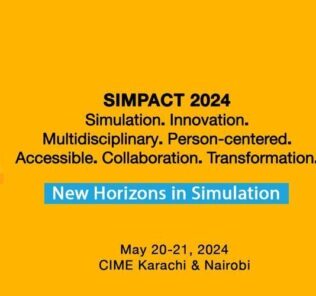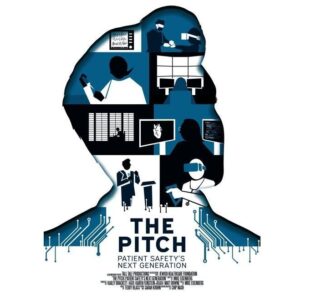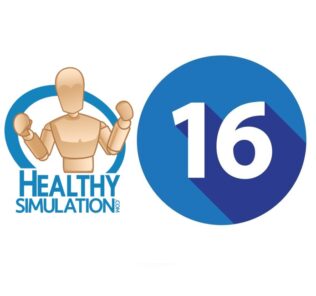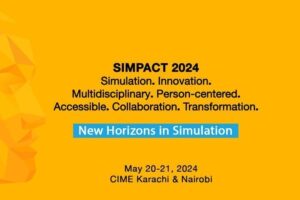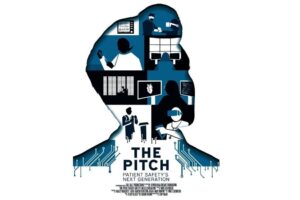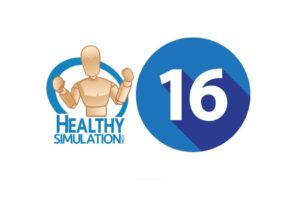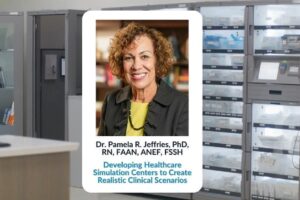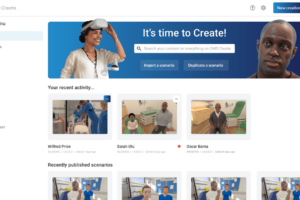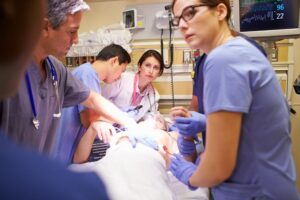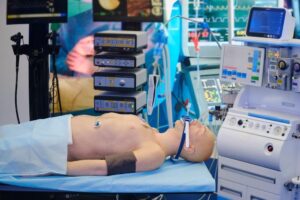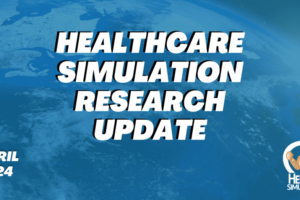ASU’s MS in Healthcare Simulation Program Promotes Patient Safety Outcomes
Healthcare simulation education aims to improve competencies in communication, teamwork, critical thinking, professional identity and safety. To provide a psychologically safe space where learners can make mistakes without risk to real patients, Arizona State University’s Edson College of Nursing and Health Innovation now offers a Master of Science in Healthcare Simulation program. In a hybrid format, the program focuses on the educational, operational, and assessment expertise needed to improve healthcare simulation settings. The program offers interprofessional learners a curriculum that emphasizes simulation theory, operations, safety, and leadership.
During the MS program in healthcare simulation, learners experience how to influence the design, operations and evaluation of educational healthcare simulation in academic or practice settings. They develop evidence-based scenario design, use technology-enhanced environments replicating real patient experiences with life-like high fidelity computer manikins or simulated participants, and employ operations techniques.
This program offers courses in hybrid format, including both asynchronous and synchronous activities. The five main simulation courses include immersion experiences for several days on the ASU campus at the end of the semester.
Sponsored Content:
Through learning and working with their peers, faculty and leaders from multiple disciplines such as healthcare, sociology, technology, the arts and public policy, learners will gain experience in creating transdisciplinary solutions. Upon completion of the program, learners are well prepared to be part of clinical simulation teams, developing strategies for experiential education that translate to educational and clinical environments. For this reason, the program is ideal for anyone with backgrounds in technology, engineering, education and healthcare.
“This master’s degree will provide students with strategies and tools for the practical application of theory and concepts in healthcare simulation. It will prepare them for various roles and responsibilities, such as simulation educator and operations specialist. Students will be able to apply their knowledge in any healthcare simulation environment using an assortment of technology and resources,” said Janet O’Brien, Ph.D., RN, CHSE, the coordinator for this program.
A key program area of emphasis is to utilize complex high-tech healthcare learning environments that promote future safe patient outcomes. Another area of emphasis is that interprofessional applied projects and diverse electives allow for more individually-tailored simulation education. In general, the program helps learners develop the professional norms and behaviors necessary to uphold the ethical management of simulation-based experiences.
“The exponential expansion of interdisciplinary healthcare simulation education creates a need for developing quality innovative leaders that operationalize an experiential teaching strategy,” said Director Margaret Calacci, MS, BSN, CNE, CHSE, clinical associate professor and senior director of the Grace Center for Innovation in Nursing Education. “The simulated learning environment provides a psychologically safe space where students can learn without risk to real patients. The Master of Healthcare Simulation at Arizona State University program provides a hybrid program including in-person immersion.”
Sponsored Content:
She added that learners will have the opportunity to collaboratively identify and develop strategies and solutions using various modalities of experiential education, learning alongside faculty and peers from multiple disciplines, including academia, healthcare, sociology, technology, the arts, or public policy to meet individual learning needs. Calacci added that this program will provide information for international certification from the Society of Simulation in Healthcare.
Degree Requirements
Required Core (21 credit hours)
- HCI 540 Understanding and Applying Principles of Evidence-based Practice (3)
- HCS 501 Foundations in Healthcare Simulation (3)
- HCS 502 Healthcare Simulation Educational Assessment and Debriefing Methods (3)
- HCS 503 Principles of Operations Management in Healthcare (3)
- NUR 520 Patient Safety and Healthcare Quality Principles, Assessment and Methods (3)
- NUR 521 Healthcare Evidence, Informatics and Analysis (3)
- NUR 671 Teaching in Academic and Practice Settings (3)
Other Requirements (9 credit hours)
- HCS 580 Practicum: Operational or Educational Perspective (3)
Choose two courses: - BMI 601 Fundamentals of Health Informatics (3)
- HCI 538 Innovation and the Individual (3)
- HCI 544 Information Technology (IT) for Healthcare Innovation (3)
- NUR 523 Interprofessional Collaboration for Improving Patient Safety & Healthcare Quality Outcomes (3)
- NUR 670 Curriculum Development in Academic and Practice Settings (3)
Culminating Experience (4 credit hours)
- HCS 593 Applied Project (4)
Additional Curriculum Information: For other requirement coursework, learners may take HCS 580 and choose two courses from the above list for a total of nine credit hours. Coursework in this section may be substituted with the approval of the academic unit.
More About the Edson College of Nursing and Health Innovation
In 1957, Arizona State University launched the School of Nursing with 58 students enrolled. Today, the Edson College of Nursing and Health Innovation provides a first-class education for over 5,300 undergraduate and graduate students. Students completing their Bachelor of Science in Nursing (BSN) degree from the Edson College have an NCLEX first-time pass rate of 95%, compared to the national average of 89.5%. Both our Master of Science in Nursing (MSN) and Doctor of Nursing Practice (DNP) degrees are ranked by U.S. News and World Report as two of the best programs in the nation.
A $25 million gift from the Edson family is helping the Edson College continue its leadership and research capabilities in the areas of cognitive development, dementia and family caregiving. The gift also provides scholarship funds that will enable students to pursue a dual Ph.D./DNP degree that will prepare them as nurse scientists who have both practice and research expertise. Additionally, funding is available for post-doctoral students in Dementia Research and Family Caregiving.
ASU’s Edson College is deeply involved in the region and the community, having long-established partnerships with Mayo Clinic, Phoenix Children’s Hospital, Dignity Health, the World Health Organization and many more.
Learn More About this Health Care Simulation MS Program
Lance Baily, BA, EMT-B, is the Founder & CEO of HealthySimulation.com, which he started while serving as the Director of the Nevada System of Higher Education’s Clinical Simulation Center of Las Vegas back in 2010. Lance is also the Founder and acting Advisor to the Board of SimGHOSTS.org, the world’s only non-profit organization dedicated to supporting professionals operating healthcare simulation technologies. His co-edited Book: “Comprehensive Healthcare Simulation: Operations, Technology, and Innovative Practice” is cited as a key source for professional certification in the industry. Lance’s background also includes serving as a Simulation Technology Specialist for the LA Community College District, EMS fire fighting, Hollywood movie production, rescue diving, and global travel. He and his wife Abigail Baily, PhD live in Las Vegas, Nevada with their two amazing daughters.
Sponsored Content:





